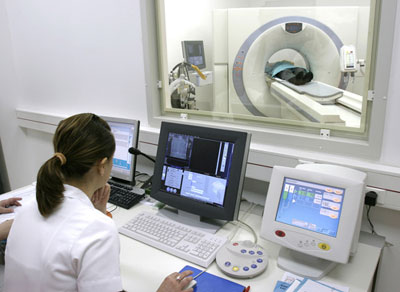Second Seminar on Telemedicine Held in Venezuela

|
| Photo: thinkpanama, Flickr |
On 26 and 27 July, the 2nd Regional Seminar on e-health and telemedicine in Latin America and the Caribbean: innovation practices and standards took place in Caracas, Venezuela. It was organized by the Latin American and Caribbean Economic System (SELA), with the support of ECLAC, through the ECLAC@LIS2 project and the Latin American Cooperation of Advanced Networks (REDClara).
“Telemedicine” is defined as medical acts carried out remotely using various technological means.
The seminar was sponsored by Telesalud (Telehealth) of Venezuela and the Venezuelan Chamber of Information Technology Enterprises (CAVEDATOS) and had the involvement of the Pan American Health Organization (PAHO). The aim was to discuss the impact of the use of information and communications technologies (ICTs) on health service provision.
According to Andrés Fernández, Social Affairs Officer of the ECLAC Social Development Division and e-health coordinator for the ECLAC@LIS2 project, that is jointly financed by the European Union: “participants discussed the state of public ICT and health policies at the national, subregional and regional levels”.
Delegates exchanged experiences and lessons learned from programmes and projects, while in terms of innovation there was discussion of “the new tools and supports, new normative developments, standards and initiatives for harmonization and interoperability”, according to the expert speaking on progress and challenges pending in Latin America and the Caribbean.
Fernández added: “E-health development has been uneven in Latin America and the Caribbean, although in general the region has been slow to incorporate ICTS into the public health sphere, unlike what has happened in other areas such as government, education, and finance”.
The expert described the region’s current challenges as including “the need to make progress in devising normative frameworks for the medical and legal validation of electronic records and acts of telemedicine, as well as formulating standards for interoperability”.
This relates to goals 13 and 14 of the Plan of Action on the Information and Knowledge Society in Latin America and the Caribbean (eLAC2015) for achieving inclusive social security.
In summary, he stated that “the region’s challenge is to generate standardized and consensual public policy on e-health products and services”.
The seminar in Caracas was attended by health experts, authorities and professionals from Argentina, Brazil, Colombia, Cuba, Ecuador, Jamaica, Mexico, Panama, Uruguay and Venezuela.
As well as ECLAC, the seminar was also attended by other multilateral agencies including the International Telecommunications Union (ITU) and the Amazon Cooperation Treaty Organization (ACTO).
The seminar held in Caracas is part of the project “Integration and Convergence for Health in Latin America and the Caribbean” (INCOSALC), promoted by the Permanent Secretariat of SELA, with the support of ECLAC and PAHO.
This project aims to strengthen the regional forum for exchanging strategies, formulating proposals and implementing and evaluating projects that contribute to the convergence and integration of Latin American and Caribbean countries in the area of health, with emphasis on the incorporation of ICTs.
More
IN FOCUS
Demand for care is a challenge for social protection
systems in Latin America
Logistical infrastructure of ports could become the
“bottleneck” of Latin American growth
The sun - renewable energy with great potential for Latin America and the Caribbean
ECLAC reveals offices
renovated following the earthquake
in 2010
|
|
|
|
“Telemedicine” is defined as medical acts carried out remotely using various technological means. |
|
|
|
|
| According to ECLAC expert Andrés Fernández, “the region’s challenge is to generate standardized and consensual public policy on e-health products and services”. | |